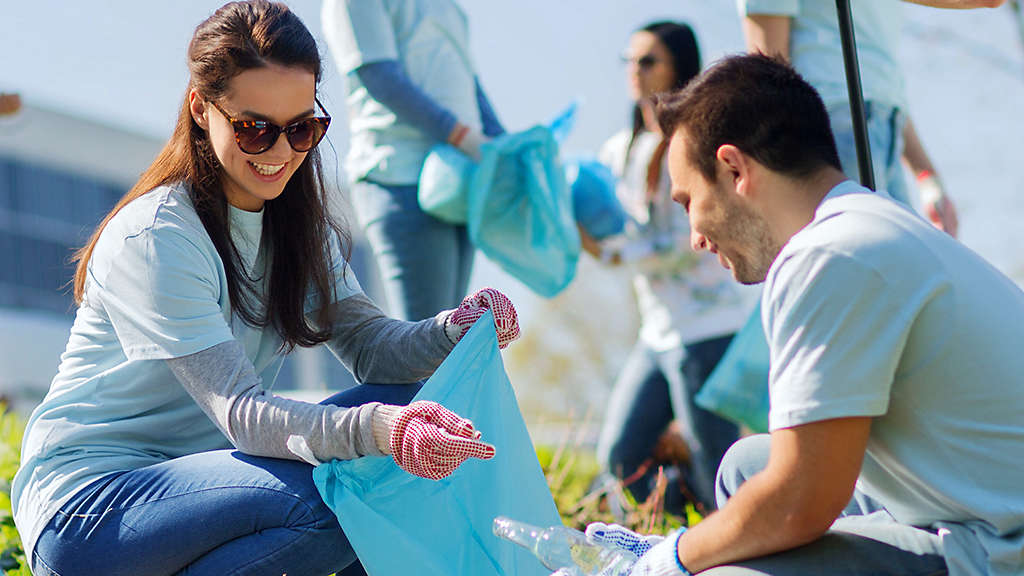
Youth Voice Day of Learning Recap Honoring Children’s Grief Awareness Month
For nearly 15 years, the New York Life Foundation has committed to increasing awareness, access, and resources for the childhood bereavement field. Our investment for this common, yet overlooked, field continues to deepen as we address the growing need for support due to the unprecedented number of mass tragedies, the COVID-19 pandemic, and the frequency of everyday grief. It is estimated that 1 in 13 children in the U.S. will lose a parent by death before the age of 18. This statistic illuminates not just the prevalence, but more importantly, the potential impacts on bereaved young people and their families.
In recognition of Children’s Grief Awareness Month, this November we partnered with the National Alliance for Children’s Grief, to host a day of learning titled “Youth Voice: The Evolution and Illumination of Grief Support.” Over 300 guests attended the day-long event on November 1 that featured experts from COVID Collaborative, Dougy Center, Eluna, Judi’s House, National Center for School Crisis and Bereavement, New York City Department of Education, Tuesday’s Children, and University of Missouri.

To learn more about research in the bereavement field and to gain insight on how to support those in your community experiencing grief, watch the below video recordings to learn from an expert array of bereavement and childhood education specialists who participated in our November 1 day of learning:
- Meeting the Needs of Children, Teens, and Adults Who are Grieving: 12 “Takeways” from 35 Years in Bereavement Work
- Childhood Bereavement Prevalence: The Story Behind the Numbers
- Centering Culture and Equity in Youth Bereavement & Grief Support
- Evolution of Grief Support in Schools
- The Intersection of COVID, Mass Tragedies, and Everyday Grief…Moving Beyond the Single Moment
- Youth Voice: Being Seen, Heard, and Understood
Meeting the Needs of Children, Teens, and Adults Who are Grieving: 12 “Takeways” from 35 Years in Bereavement Work
Dr. Donna Schuurman, Sr. Director of Advocacy & Training at Dougy Center, began the day of learning by sharing a dozen “lessons learned” through her work at Dougy Center. Dr. Schuurman’s presentation examined the lived experiences of children as young as three through early adulthood along with their parents or adult caregivers as they grieve the death of family member or friend. The “takeways” in Dr. Schuurman’s presentation are relevant to anyone wanting to better understand and support those who are grieving.
Childhood Bereavement Prevalence: The Story Behind the Numbers
In her presentation, Dr. Michaeleen (Micki) Burns, Clinical Director at Judi’s House, shared preliminary data from the 2022 Childhood Bereavement Estimation Model (CBEM) which indicates 7.7% of U.S. youth – more than 5.6 million – will experience the death of a sibling or parent by age 18 – an astounding increase driven by pandemic-related losses. Dr. Burns noted that the death of a significant attachment figure places children at increased risk for emotional, relational, behavioral, and academic problems, as well as earlier mortality. Unaddressed childhood bereavement can contribute to a litany of adverse outcomes as youth move along the developmental continuum. Positively, Dr. Burns also highlighted protective factors, such as positive role models, healthy coping skills, peer support, and encouraging educators and caring adults can provide the scaffolding bereaved youth need to heal.
Centering Culture and Equity in Youth Bereavement & Grief Support
In her presentation, Dr. Tashel Bordere, Assistant Professor of Human Development and Family Studies and State Extension Specialist in Youth Development at the University of Missouri, Columbia, addressed culture and inequities in loss and service provisions to youth and families occupying marginalized identity statuses. Drawing from research and case examples, Dr. Bordere described ways in which loss and grief processes are uniquely complicated for socially disadvantaged youth and often involve patterns of suffocated grief. Dr. Bordere also discussed culturally conscientious and responsive strategies and practices with youth and families.
Evolution of Grief Support in Schools
In this panel discussion, representatives from the New York City Department of Education (Tamara Mair and Michelle Patterson) and the National Center for School Crisis and Bereavement (Dr. David J. Schonfeld) highlighted their partnership to support students and staff experiencing grief and loss through the New York Life Foundation’s Grief-Sensitive Schools Initiative. The panelists shared approaches and techniques schools and districts can implement as they strive to become more grief sensitive.
The Intersection of COVID, Mass Tragedies, and Everyday Grief…Moving Beyond the Single Moment
This panel discussion focused on the impact of grief beyond a single “news cycle.” Representatives from COVID Collaborative (Dr. Catherine Jaynes), Judi’s House (Dr. Micki Burns), and Tuesday’s Children (Sallie Lynch) discussed how to infuse grief support across sectors where we can most effectively help those in need. The panel called attention to the negative impacts of “inaction” and highlighted what we as a community can do to move beyond just “awareness” and toward meaningful actions.
Youth Voice: Being Seen, Heard, and Understood
The “Youth Voice” event concluded with a panel of three young adults from our partner organizations. Sam Adams (Eluna), Reid Orlando (Tuesday’s Children), and Rob Pycoir (Tuesday’s Children) shared their personal experiences of grief after experiencing the death of an important person in their lives. In addition to sharing their personal experiences, the young adults called attention to ways the community can support others who may be grieving.
Learn more
We hope the above videos provide insight into the additional need for grief support for bereaved youth and their families as well as the work of the New York Life Foundation and our partners in creating and disseminating bereavement resources across the country.
